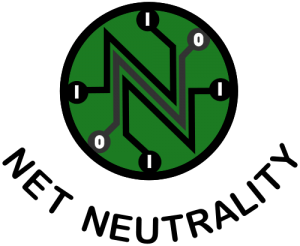The End of Net Neutrality?
In January of this year, a federal court of appeals tossed aside Federal Communications Commission (FCC) regulations that limited Internet Service Providers (ISP) ability to discriminate and interfere with speeds of certain types of content. This has been touted as one of the final, deadly blows in the battle over “net neutrality.”
 When the Internet first started to become the high-speed, high-bandwidth behemoth it is today, there was this concern that ISPs could freely funnel certain types of information through at the higher speeds. This naturally would leave other content that the ISP chose on the outer ring of the bottleneck, if not shut out entirely. This ostensibly would create a type of tier system, in which some “data” would be more valuable than others, and obviously, priced accordingly.
When the Internet first started to become the high-speed, high-bandwidth behemoth it is today, there was this concern that ISPs could freely funnel certain types of information through at the higher speeds. This naturally would leave other content that the ISP chose on the outer ring of the bottleneck, if not shut out entirely. This ostensibly would create a type of tier system, in which some “data” would be more valuable than others, and obviously, priced accordingly.
Sounds a little greedy, doesn’t it? I mean, if you are already paying for access to this ‘information super highway,’ why should you have to pay more or less depending on what you chose to do with your lane on that highway? A good way to think of it is being charged a toll to get onto a highway, and then, instead of relying on a uniform speed limit, you were limited depending on whether or not you were driving a sports car or a hybrid or a news van. In this example, the sports car could be left in the dust by news vans and hybrids, just based on the preference of the authority overseeing the highway. In an even more Kafka-esque twist, imagine you could only go quicker in your sports car if you paid more sports-car-exclusive tolls along the way.
But has this sort of thing happened? Well, yes, but only once (officially). Comcast has intentionally limited the speed of peer-to-peer (P2P) sites such as BitTorrent (think of Napster but for all things entertainment). And with this recent decision, the FCC is scrambling, almost desperately so, to try and draft a set of regulations or disclosures that will keep the Internet open and to stop this type of discrimination from happening on a larger scale.
But could it happen on a larger scale, you ask? Well, even when the FCC was regulating ISPs, it allegedly already has. During the legal proceedings in January that lead to the holding that the FCC has no authority to enforce a ‘net neutrality’ principal, AT&T and Verizon were both under fire; AT&T for patenting processes that take advantage of the FCC’s current, meek regulations, and Verizon for showing slower speeds through Netflix and Amazon Cloud services.
Fine, but why do I care? Plain and simple: money. Think of your cell phones data plan. Cell phone companies have been doing this sort of tiered data streaming for years. If you pay for 1GB of data, you can get more once you cap out, but at a price. And if think your phone gets “unlimited” data, think again: despite the premium price you pay, it gets a specified amount of data at normal speed, and then the speed you receive any data after that is drastically reduced. This may not matter much if you do not stream videos, but if you do, you pretty much are required to pay more for using the airwaves than someone who just looks at pictures or reads the news.
To boot, if ISPs are free to cap bandwidth for certain types of sites, like Netflix, and especially sites that compete with their own video or music services, you can be assured that they will. And as long as there is a demand, companies will begrudgingly pay whatever they must to have the cap removed, and then they will shamelessly pass that cost on to customers. While this does not necessarily mean your $8 pass to streaming online movies will jump to $80 overnight, it does mean that there will almost definitely be an increased cost, or in exchange, decreased service, and all in the name of this “artificial” scarcity the ISPs are free to create. Again, we all understand the cost of fuel rises and lowers on availability and projected use, but the Internet simply is not a finite resource.
Unfortunately, if the FCC is unable to come up with meaningful regulations, it will certainly start to feel that way. And while your nightmare of a slow-as-molasses Netflix may not come true, it’ll certainly cost you in the form of ads or a spike in service fees.


Comments